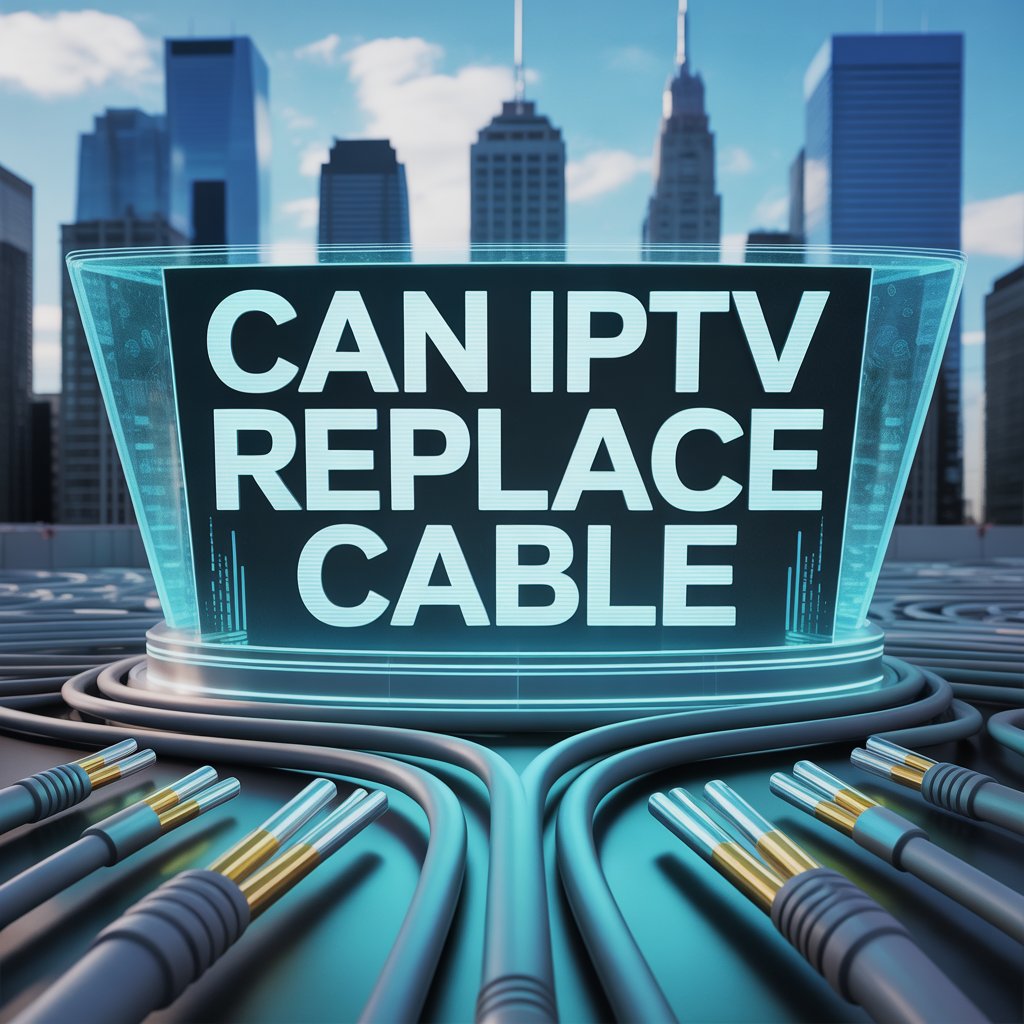can iptv replace cable

- Topic of Comparison
The sentence Can IPTV replace cable brings attention to the shift from traditional cable television to internet-based streaming services. IPTV offers content through internet protocols, allowing users more control over what and when they watch. Unlike cable, which follows fixed schedules, IPTV provides flexibility and convenience. This question highlights a growing interest in modern, digital alternatives to long-standing cable services.
Many people are wondering, Can IPTV replace cable as streaming platforms develop. As more people seek viewing options that are affordable and customizable, this is a legitimate concern. IPTV is already competing with cable by offering live TV, on-demand content, and multi-device access. However, cable still has advantages in terms of coverage and stability in some areas. The debate continues: Can IPTV replace cable? The answer may depend on user needs and future technology developments.
- Implied Technological Shift
Many people are wondering, “Can IPTV replace cable” as streaming platforms develop. As more people seek viewing options that are affordable and customizable, this is a legitimate concern. IPTV is already competing with cable by offering live TV, on-demand content, and multi-device access. However, cable still has advantages in terms of coverage and stability in some areas. The debate continues: “Can IPTV replace cable ” The answer may depend on user needs and future technology developments.
Technology is rapidly evolving, and entertainment is following suit. The growing popularity of IPTV reflects a broader digital transformation. Features like on-demand streaming, mobile access, and interactive services are shaping user expectations. As we consider “Can IPTV replace cable“, we also ask whether modern viewers still need the rigid structure of cable. The repeated question—“Can IPTV replace cable“—underscores this major transition. In many ways, the answer depends on how quickly users embrace the shift.
- Consumer Behavior Insight
The question “Can IPTV replace cable” reflects a significant shift in consumer behavior, as viewers increasingly prefer flexible, personalized, and on-demand content. With its fixed schedules and limited control, traditional cable no longer meets the needs of today’s audiences, who value mobility and convenience. “Can IPTV replace cable” is a question that arises as more people stream content across multiple devices. becomes a central question in understanding these changing habits. As this trend grows, businesses and providers must consider: “Can IPTV replace cable” and fully satisfy the evolving demands of digital-age consumers.
- Economic and Market Implications
The question “Can IPTV replace cable” carries significant repercussions for the market and economy, particularly for businesses in the television and telecom sectors. Traditional cable companies must innovate or risk losing market share as IPTV services expand. With IPTV often offering cheaper, more flexible subscription models, consumers are reevaluating what they pay for. Pricing, advertising, and content strategies must all be rethought by businesses as a result of this shift. As competition intensifies, “Can IPTV replace cable” becomes a crucial question for industry leaders.
From a market perspective, IPTV’s rise challenges established cable TV-based business models. The rising demand for internet-based services has an effect on infrastructure investments, customer retention strategies, and even job roles. Investors and analysts are watching closely, asking “Can IPTV replace cable” as they assess future growth opportunities. If IPTV continues to expand, traditional cable could shrink significantly. The constant inquiry, “Can IPTV replace cable” highlights not just a shift in technology, but a fundamental change in how the media market operates. As this transformation unfolds, one must ask again: “Can IPTV replace cable“
- Open-ended Inquiry
The sentence “Can IPTV replace cable” poses an open-ended question that encourages a broad exploration of the future of television viewing. It doesn’t want a straightforward yes or no answer; rather, it wants you to think about a lot of different things, like technology, consumer habits, infrastructure, and how ready the industry is. This question sparks curiosity and debate, prompting people to weigh the pros and cons of IPTV compared to traditional cable.\
One key aspect of this inquiry is understanding the technological advancements behind IPTV and how they might transform the viewing experience. IPTV, unlike cable, depends on internet connectivity, so its success is heavily dependent on internet speed and availability. This raises questions about accessibility and quality, especially in regions where reliable broadband is not yet widespread. Therefore, “Can IPTV succeed cable” becomes a reflection of technology’s readiness to fully support this transition.
Consumer preferences also play a vital role in this discussion. Many viewers now favor on-demand content, flexibility, and multi-device access—areas where IPTV excels. However, some still value the stability and familiarity of cable. This tension highlights the complexities behind the question “Can IPTV replace cable” as it relates not only to technology but also to user habits and expectations. The answer depends on how these preferences evolve over time.
Finally, the question opens up broader considerations about the media landscape and business models. IPTV providers must overcome regulatory, technical, and competitive obstacles, while traditional cable companies must adapt or risk losing customers. By posing an open-ended question like “Can IPTV replace cable” encourages ongoing dialogue about how television consumption will develop and what the future holds for both providers and consumers.
